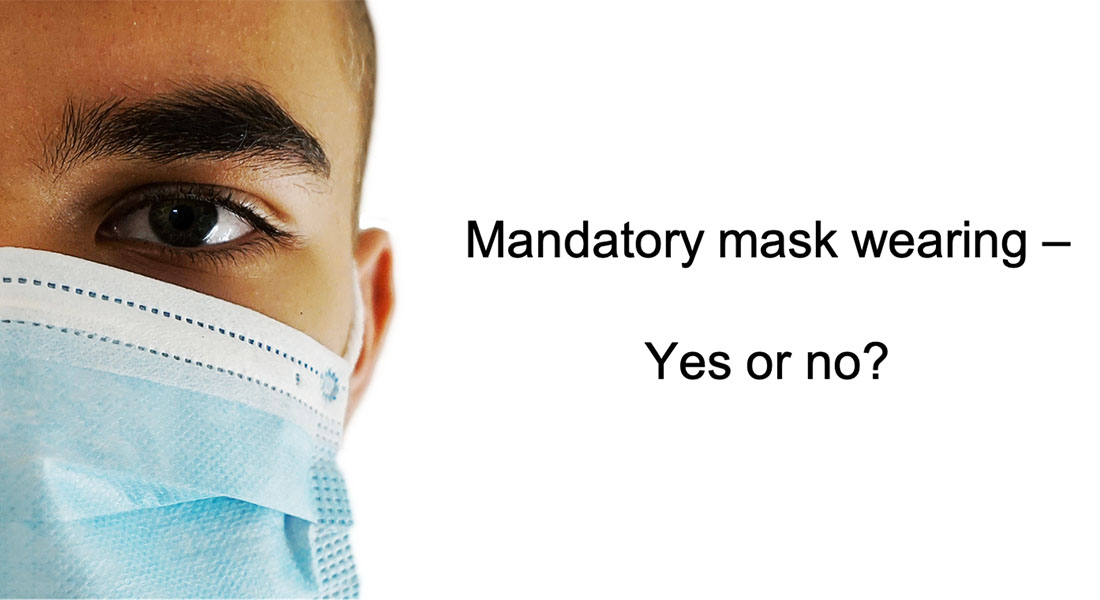Why wearing af face mask during the COVID-19 pandemic should be mandatory
A new study by Robert Böhm investigated effects of mask policies on stigmatization and behavior.

Face masks have become a symbol of the current pandemic in many countries around the globe. Wearing a mask is considered one of the most effective measures to curb the spread of the disease. Yet, it is voluntary to wear a mask in some countries, whereas others, such as Germany, have made it mandatory. In fact, it has been heatedly discussed whether mask wearing should be mandated.
Researchers at the Universities of Erfurt and Copenhagen have now investigated citizens’ perceptions and behavioral effects of voluntary versus mandatory mask wearing. In the study, published in the renowned scientific journal PNAS (Proceedings of the National Academy of Sciences), they analyzed data from the German COVID-19 Snapshot Monitoring (COSMO) survey, which has had about 1,000 participants per week since the beginning of March 2020.
As expected, introducing a mandatory policy by the end of April in Germany increased self-reported mask wearing considerably. More interestingly, participants who reported to wear a mask regularly were also more likely to adhere to other behavioral recommendations, such as keeping physical distance and hand hygiene. Further, mandatory mask wearing was perceived as fairer and led to less stigmatization than voluntary mask wearing. Lead author Professor Cornelia Betsch from the University of Erfurt explains: “When mask wearing is voluntary, people who wear a mask are perceived as members of a risk group, such as chronically ill persons. This can have negative effects for mask wearers, for instance by others avoiding contact with them.”
The researchers also found that persons who reported to wear a mask regularly also evaluated other mask wearers more positively than those who don’t wear a mask. “The results show that mask wearing poses a social contract. When we wear a mask, we also expect this from others. We socially reward other mask wearers and punish those who don’t adhere to the social contract.” says Robert Böhm, co-author and KU professor at SODAS/Psychology. Accordingly, a voluntary mask wearing policy could increase polarization in society.
In summary, the results suggest that a mandatory mask wearing policy is preferable to a voluntary policy. This is not only because it will increase mask wearing, but also because it is perceived fairer and less stigmatizing compared to voluntary mask wearing. Eventually, adherence to other behavioral measures aimed to reduce the spread of COVID-19 could even increase when mask wearing is mandatory.
Find the research article at Proceedings of the National Academy of Sciences' website.
Contact
Robert Böhm
Professor in Applied Social Psychology and Behavioral Science
The Department of Psychology
E-mail: rb@psy.ku.dk
Phone: +45 35 37 72 27
